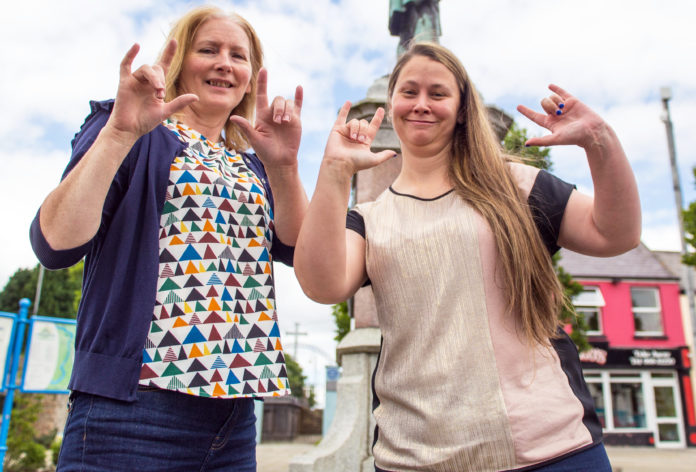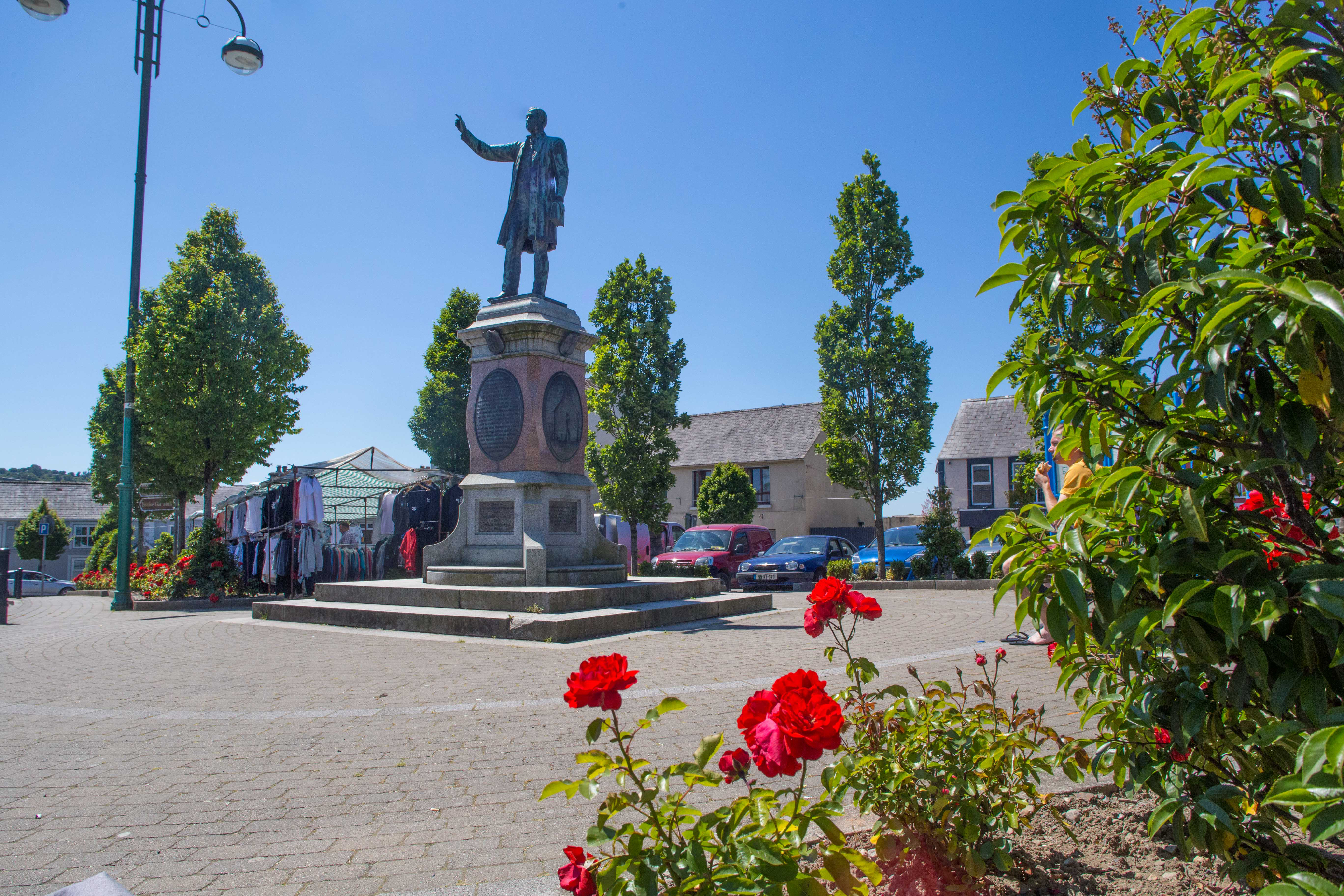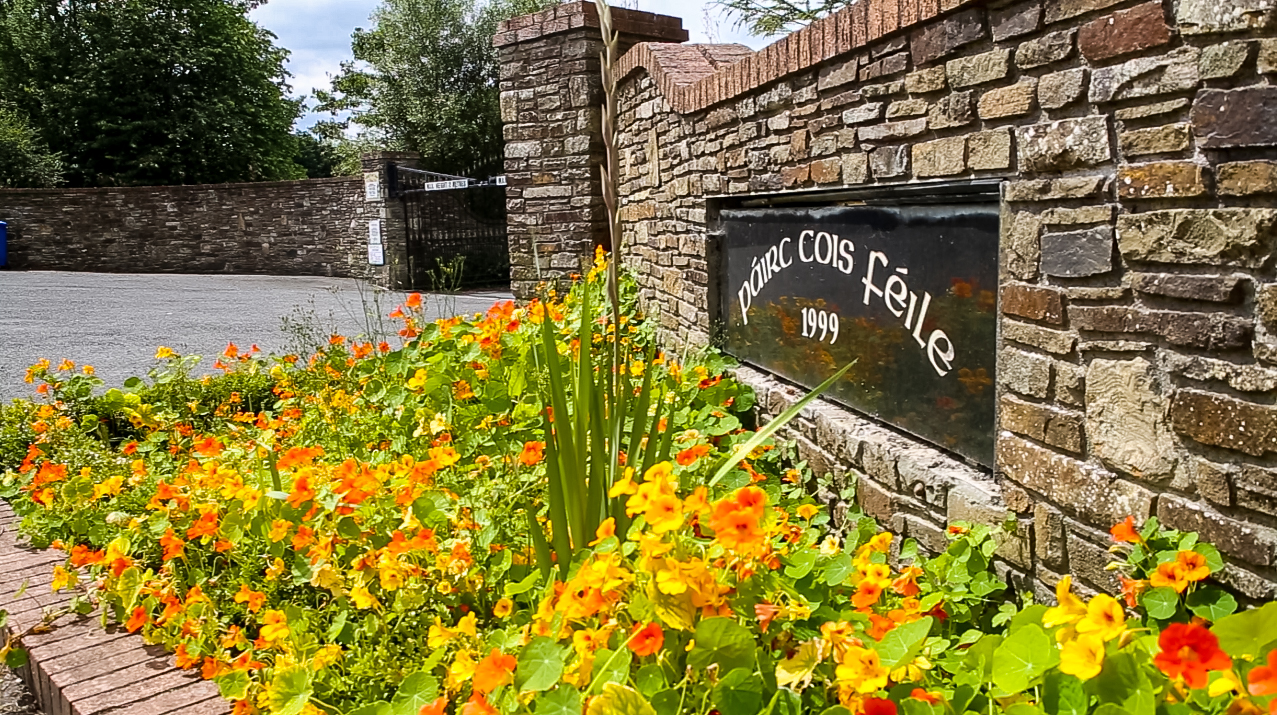
MARIA Barrett was born profoundly deaf, a late diagnosis that was instigated by her poor balance as a one year old, but it hasn’t prevented her from fulfilling her lifelong wish to teach speaking adults.
As a professional adult living in Abbeyfeale, and into her second year of teaching adult night classes under the auspices of the Limerick and Clare Education and Training Board (LCETB), Maria has grown her student body into 50.
“We have a wonderful network behind us,” her mother Mary Barrett makes clear, delighted in being able to consolidate the future of Irish Sign Language (ISL) teaching locally.

Photo: Cian Reinhardt
The structure of these twice-weekly night classes follows the path to official Q1 accreditation: Basic, then Years 1, 2, 3 and 4.
Any sign language is of the face and body as much as the hands. Incidentally, our ISL is thought to be closer to France’s customised sign language than to Britain’s.
Building the Abbeyfeale classes to their committed following today is an extraordinary achievement, maturing out of a childhood spent being treated variously in Irish hospitals and Manchester’s Royal Infirmary.
“When Maria was born, we all went together as a family to learn sign language,” mom Mary tells the Limerick Post . Maria is brought in on every word through signalling for her say-so.
“She was the third one, the baby and no, there was no preceding history of deafness among us.”

A journey through several doctors and being engaged with neighbourly talk, the exploration took them to Dublin’s Adelaide for first satisfactory diagnosis: Maria was stone deaf. Matters were complicated by a glue ear infection.
You can query the pain factor for a small child at this point and Maria nods her head emphatically. It was bad, with knock-on effects to eye and nose discomfort. There was worse to come as the glue ear proved all but untreatable, resulting in adhesions.
In Limerick, our Regional Hospital had no luck treating repeatedly with grommets. The Royal Infirmary refused a cochlear implant solution but at seven years old, a Dublin hospital persevered with the insertion.
No good came of this complex, painful surgery. Quite the opposite.
Maria looks conflicted at the memory and signs rapidly to Mary, who translates
“It was nine hours we were waiting for you to come out of the ward. When the cochlear implant was turned on in the beginning, it was doing OK and then the infections started setting in again. Then she stopped using it. It’s still in place to day.”
The pain factor to the earlier surgery was such that she would not endure the same again.
For all that, Maria Barrett pursued a regular education in the same timeframe as her peers at the Limerick based School for the Deaf and graduated into Limerick College of Further Education. She went on to take out a Bachelor’s degree in Art through LIT.
The rest of this Abbeyfeale family had to travel to the city over years to learn sign language variously as there was no provision locally.
“Maria told us that the one thing she would love to do is teach ISL to people who could hear. Now ISL is a recognised language officially, since last year.” Maria is delighted with the new status quo.
Mary continues: “She was the one who was influenced into setting up the classes here in town. She was approached by people who wanted to learn.”
Various professionals are attending, doctors and teachers of other subjects included. Maria Barrett had a catchment of 26 in her first year and was sole teacher.
“It has actually spiralled this year and the class has moved from St Ita’s to the LCETB at the former Vocational School. This year, 10 people have moved up to Level 1 from Basic and there will be a new unit, Level 2 in this course of 1, 2, 3 and 4 that each take an academic year to learn by night classes. 3 and 4 follow for exams.”
“After the college advertises, the classes grew and grew and there are three one-hour classes on a Tuesday night, and three on a Wednesday night.”
Mary Barrett and/ or Maria’s sister Ida come into to interpret and assist, but are not instructors. “Maria does out the programme notes and paper work also for the course and its students.”
Increasingly, fluent and frequent communication between various generations and nationalities, speaking and non speaking, hearing or those with impaired or nil ability to hear, manifest throughout the town. Happy talk.


